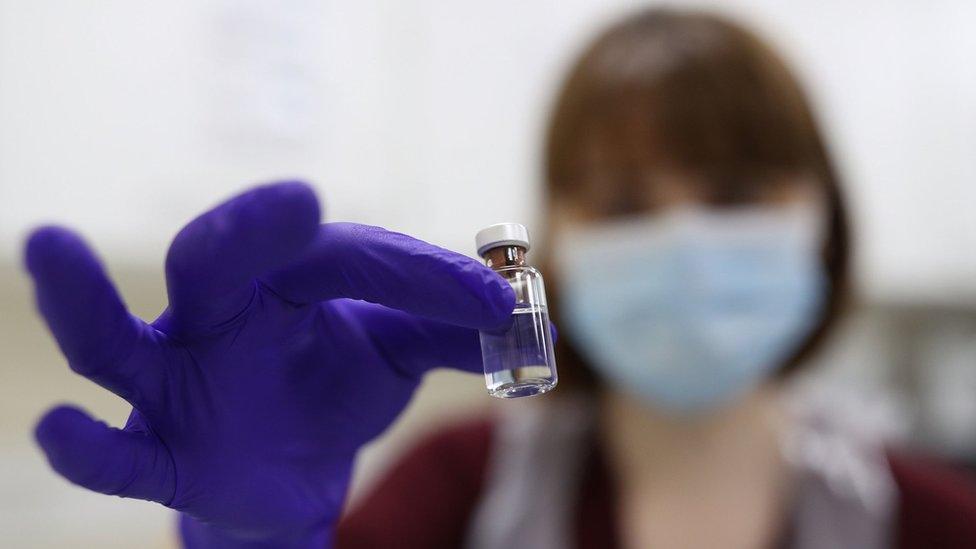Covid vaccines do work well in clinically vulnerable
- Published

Covid vaccines are highly effective in people with underlying health conditions who were advised to shield earlier in the pandemic, real-world UK data reveals.
The study, external of more than a million people in at-risk groups shows two doses of the Pfizer or AstraZeneca vaccines are needed for this protection.
Being double-jabbed reduced the risk of symptomatic Covid-19 by around 90%.
One dose cut it by about 60%, says Public Health England (PHE).
It takes a couple of weeks for the protection offered by a second to kick in.
Protection against hospitalisation and death in at-risk groups is expected to be greater than protection against symptomatic disease, as has been seen in studies of the general population, although more data is needed to confirm this.
The preprint study findings also cover a time period when the Alpha, or UK, coronavirus variant was dominant, rather than the Delta one, which is behind most infections occurring now.
But experts are increasingly confident that existing vaccines still work well against Delta.
Dr Mary Ramsay, head of immunisation at PHE, said: "This real-world data shows for the first time that most people who are clinically vulnerable to Covid-19 still receive high levels of protection after two doses of vaccine.
"It is vital that anyone with an underlying condition gets both doses, especially people with weakened immune systems as they gain so much more benefit from the second dose."
In the study, one dose of vaccine was, on average, only 4% effective in people with weakened immune systems. Efficacy increased to 74%, however, after two doses.
The charity Blood Cancer UK, external says much more data is needed to assess vaccine efficacy in different groups of people who are immunocompromised.
Chief Executive Gemma Peters said: "The study states that vaccine response is lower in the immunocompromised, and there are too few immunocompromised people to draw confident conclusions. Also, there are a wide range of health conditions that weaken people's immune systems, and it is unhelpful to make generalised conclusions.
"Our advice to people with blood cancer remains the same. While there is a lot of uncertainty, there is enough reason to think the vaccines may not work as well for some people with blood cancer to continue to be cautious even after having both doses."
- Published1 April 2021
